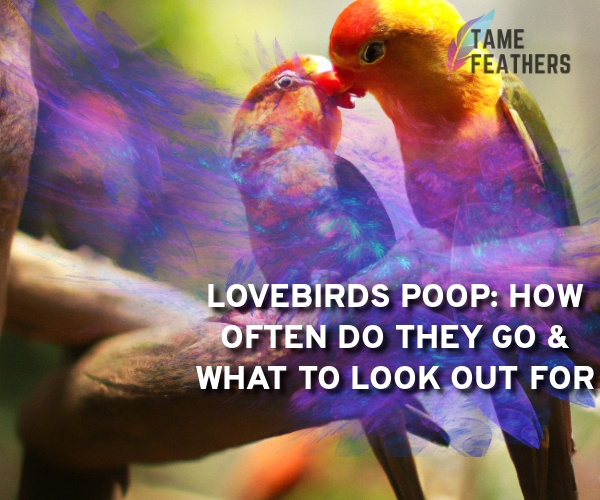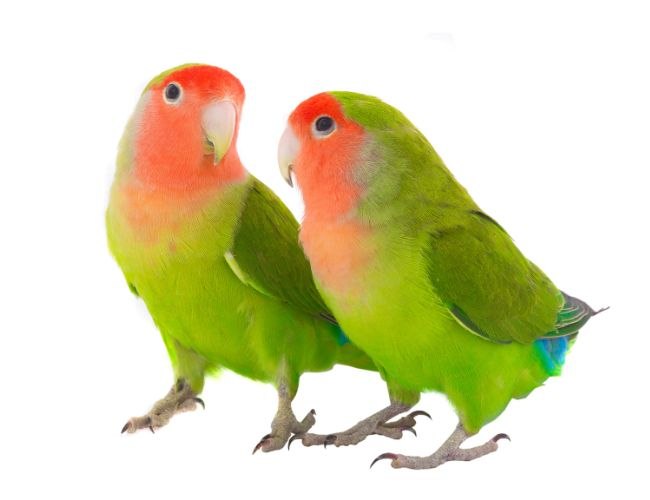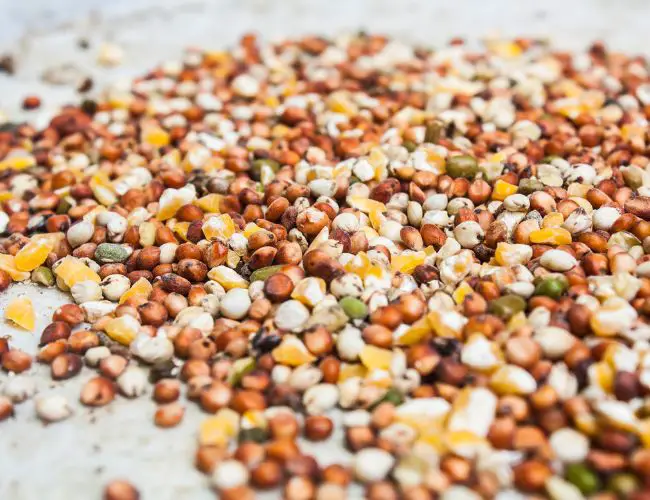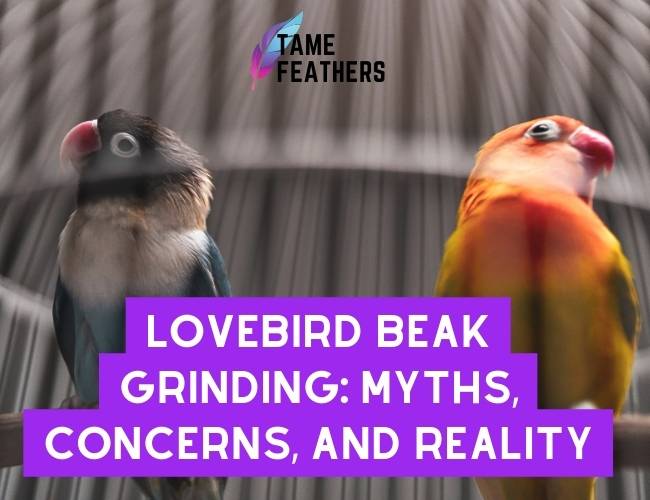One of the biological process of almost all living organism is to excrete waste materials from their body. Humans, reptiles, mammals, and avian all do excrete poop.
However, unlike humans, it is hard to measure or to see whether our pets are excreting waste materials properly. As we all know, excessive excretion can sometimes be a symptom of a disease. Hence, it is important to know what the poop of our beloved pets look like.
In this post, I will tell you everything you need to know about lovebirds poop. I’ll tell you how often they should come and what to look out for.
So, what are we waiting for?
Let’s dig in!

How Often Do Lovebirds Poop?

Lovebirds are quite active birds, and they need to poop often.
On average, a lovebird will poop around five to six times a day.
However, this can vary depending on the individual bird’s diet and activity levels.
For example, if your lovebird is eating more than usual or has been playing harder than usual then they may end up pooping more frequently in order to expel excess waste from their body.
It’s important to keep an eye on how often your lovebird poops since it can be a sign of health issues if there is a significant increase or decrease in their bowel movements.
What Does Normal Lovebird Poop Look Like?

Normal lovebird poop should look like small pellets that range between 1-3 cm long and 0.5 -1cm wide.
The color of the droppings depends on what type of food your bird ate most recently but generally speaking it should be either dark greenish brown or yellowish brown with some white urates mixed in for good measure.
If you notice any unusual colors such as reds, blues or greens then this could be indicative of an infection so it’s best to bring them into the vet right away for testing purposes just to make sure everything is alright!
Signs Of A Healthy Lovebird Diet

The best way to ensure that your lovebird is getting all the nutrients they need is by feeding them a balanced diet consisting mostly of seed mixes supplemented with fresh fruits and vegetables as well as occasional treats like mealworms or boiled eggs (for extra protein).
Additionally, you want to make sure that their water bowl stays full at all times because dehydration can lead not only too poor digestion but also other health issues down the road such as kidney disease which can have fatal consequences if left untreated for too long.
Keeping track of how much food and water your bird consumes daily will help you determine whether they’re receiving enough nutrition from their current diet so watch out for any drastic changes here too!
Pooping Habits To Be Aware Of
In addition to paying attention to how often your lovebirds poop each day, you’ll want to take note of any changes in their habits when doing so as these could indicate potential problems that require medical attention right awa.
For instance: sudden bouts of diarrhea could point towards digestive system upset while excessive straining during defecation may imply constipation.
Both scenarios warrant immediate veterinary care especially since birds’ bodies don’t handle gastrointestinal illnesses very well due being highly sensitive creatures overall.
Also remember that regular visits with avian vets are highly recommended regardless since having someone who specializes in caring for pet birds checkup on yours once every few months goes a long way towards keeping them healthy over time!
Monitor Your Bird’s Poop Habits Closely
At the end of the day, monitoring your bird’s pooping habits closely ensures that any underlying medical conditions get treated promptly before things get out hand quickly—which unfortunately happens far too often when owners fail realize something might wrong until its already progressed beyond repairable stage sadly enough.
So always stay vigilant about observing feces output regularly means being proactive about catching certain diseases early which ultimately translates into longer life spans happy feathered friends alike.
Want To Learn More About Lovebirds
If you found this post useful, you may also like
Lovebird Breeding Chart: An Essential Guide For All Breeders. There is a lot to learn about Lovebirds, hopefully, this post on Are Lovebirds Affectionate? Discover The Surprising Truth Here! is useful! Another post you’ll find interesting is
Can Lovebirds Live Outside: What You Need To Know Before Letting Them Fly Free.





